History
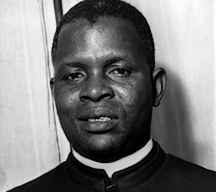
August 15, 1960
The Congo proclaims its independence, abbot Fulbert Youlou becomes President of the Republic.
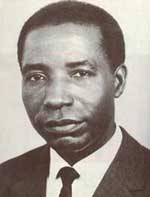
19th December 1963
Alphonse Massamba-Debat accedes to the Supreme Magistrature.

January 1, 1969
Marien Ngouabi becomes Head of State.
December 31, 1969
The Republic of Congo becomes the People's Republic of Congo.
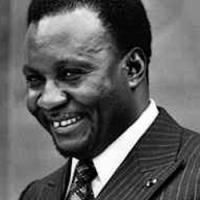
March 18, 1977
Marien Ngouabi is assassinated. Former President Massamba-Debat who dies during the crisis, is involved in the assassination.
April 5, 1977
Colonel Joachim Yhombi-Opango becomes head of state.
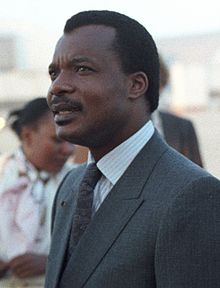
February 5, 1979
Joachim Yhombi-Opango is removed from power. Colonel Denis Sassou-N'guesso is appointed Head of State by the PCT.
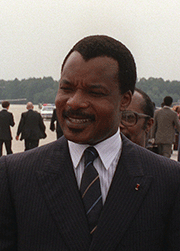
July 30, 1984
Colonel Denis Sassou N'guesso is re-elected President of the Republic and Chairman of the Central Committee of the PCT.
September 30, 1990
Introduction of multiparty politics
December 10, 1990
The Congolese Labor Party (PCT) abandons its Marxist-Leninist ideology.
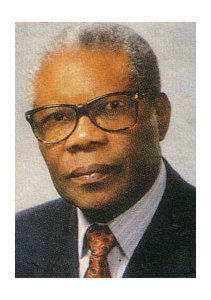
August 16, 1992
Pascal Lissouba of UPADS won the presidential election.
November 3, 1993
Clashes between the army, the opposition and rival militias. The civil war begins and ends in 1994.
June - July 1997
Clashes in Brazzaville between the army and the militias of former President Denis Sassou N'guesso. the Constitutional Council decides to postpone the presidential election, originally scheduled for July 27 and to extend the term of office of the President.
September 10, 1997
Bernard Kolélas is appointed Prime Minister.
October 1997
Decisive battles between the supporters of Denis Sassou-Nguesso and the forces of President Lissouba. The pro-Sassou come out winners. Denis Sassou N'guesso is sworn in as President of the Republic.
December 29, 1999
Agreement on the cessation of hostilities between the army and rebel militias.
April 14, 2001
The parties sign the Congo peace and reconstruction agreement, and close the national dialogue chaired by international mediator El Hadj Omar Bongo and Denis Sassou N'guesso.
January 20, 2002
Adoption by referendum of a new Constitution establishing a presidential regime in which the Head of State is elected by direct universal suffrage for a term of seven years.
March 20, 2002
Holding the presidential election. His Excellency Mr. Denis Sassou N'guesso wins the elections and begins a seven-year term.
July 2009
Holding the presidential election. His Excellency Sassou N'guesso is re-elected
The history of the Republic of the Congo has been marked by French colonization, a transition to independence, socialism, and a transition to a market-oriented economy in the 1990s.
The earliest inhabitants were the Bambuti people. The Bambuti were linked to Pygmy tribes. The main Bantu tribe living in the region were the Kongo, also known as the Bakongo. They established a kingdom close to the Congo River, which encompassed all or parts of present-day Angola, the Republic of Congo, the Democratic Republic of Congo and Gabon.
PORTUGUESE EXPLORATION
In Portugal, King John’s II quest for access to the Eastern markets prompted Portuguese expeditions in Congo. From, 1482–1483, Captain Diogo Cão, sailing southwards discovered the Congo River, and became the first European to encounter the Kingdom of Kongo. In the beginning, relations were limited but were soon considered beneficial to both sides. Christianity soon became widely accepted by the local nobility. After the baptism of the King Nzinga a Nkuwu, Christianity gained a strong foothold in the Kongo kingdom. The spread of Christianity in the Kongo Kingdom helped build diplomatic relations between Portugal and the Kongo Kings.
SLAVE TRADE
As the Portuguese's demand for black slaves grew, the pressure on the Kongo Kings increased. Portugal relied on Kongo Kings for the supply of slaves to the Americas. It is estimated that Portuguese slave traders took away 350,000 slaves from the Kongo Kingdom.
REVOLTS
The Battle of Mbwila was the result of a conflict of mining rights between the Portuguese led by Governor André Vidal de Negreiros and the Kongolese King, António I. Due to the Kongolese refusal to give the Portuguese extra territorial rights, revolts between the parties often erupted. During the battle of October 25th, 1665, the Kongolese army fought against the Portuguese. The Portuguese won the battle. The revolt of Kimpa Vita (Congolese prophetess and leader of her own Christian movement) in the following years was another attempt of the Kongolese Kingdom to regain independence from the Portuguese.
After the Kingdom of the Loango had gained independence, a new set of small kingdoms came into existence. The Teke Kingdom became the most important and the largest political entity. It encompassed all or part of present-day Republic of Congo, Gabon, Central African Republic and the Democratic Republic of Congo. Portugal’s unilateral position in Europe suffered a major blow in 1580 when the Kingdoms of Spain and Portugal became united under King Philip. The alliance resulted in a decrease in Portugal’s omnipresence in Kongo. The Kingdom of Kongo was reduced to a small enclave in the north of Angola with King Pedro V in 1888 finally accepting to become a vassal of the Portuguese. The Portuguese abolished the kingdom after the revolt of the Kongolese in 1914.
The period leading up to the Berlin Conference of 1884 saw a rush by the major European powers to increase their control of the African continent. The rise in Western Europe of capitalism and the consequent industrialization led to a fast growing demand for African raw materials like rubber, palm oil and cotton. European powers seeking raw materials to boost their economies and fuel territorial expansion looked to Africa as the solution. The interest in the quest for raw materials became known as the “Scramble for Africa.” The Congo River hereby became a prime target for this new conquest by the European nations.
French explorer, Pierre Savorgnan de Brazza, whose last name would be later used to name the capital “ Brazzaville” was born in 1852 in Rome. As a French naval officer, he refused to work for the International African Society and instead helped the French in their conquest of the northern Congo River. Traveling from the Atlantic Ocean coast which is present-day Gabon via the rivers Ogooué and Lefini, he arrived in 1880, in the Kingdom of the Téké. In September 1880, he signed a treaty with King Makoko establishing French control over the region.
On April 30th, 1891, the French named their Congolese territory “Colony of French Congo.” On January 15th, 1910, the colony again was renamed French Equatorial Africa (Afrique Equatoriale Française or A.E.F). French Equatorial Africa included present day Central African Republic, Cameroon, Chad and the Republic of Congo. During Nazi occupation of France during WWII, the Republic of Congo became the capital of Free France from 1940-1943. In 1944, France hosted the Conference of Brazzaville in which many French colonial policies were reformed. Brazzaville gained autonomy on the November 28th, 1958 and officially became the Republic of Congo.
André Matsoua is considered as one of the most influential nationalists during colonization. He was an active opponent against the Code de l’indigénat ( Indigeneous Code) . Other leaders of nationalism and independence such as former Catholic priest, Fulbert Youlou’s and Jacques Opangualt paved the way for national independence on August 15th, 1960.
As the former capital of French Equatorial Africa, Brazzaville remained a refuge for trade unions. After many turbulent years and the collapse of the Soviet Union in the 1990, the Republic of Congo transitioned from one party rule and planned economy to a multiparty democracy and a market oriented economy.
Unfortunately, in 1997, Congo’s march towards economic development and democracy was halted as the Republic of Congo sank into a civil war. After the signing of a cease fire in October 1997 and a peace agreement in December 1999, H.E President Denis SASSOU N'GUESSO was able to lead the country to a new chapter of its history. Democratic presidential elections were held in 2002 and 2009 in which President Denis SASSOU N'GUESSO won a majority and was re-elected by the Congolese people.
PRESIDENTS' GALLERY
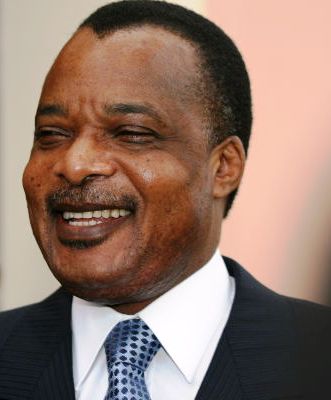 Denis Sassou-Nguesso (1979-1992) et (1997 - Present) |
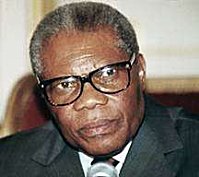 Pascal Lissouba (1992 - 1997) |
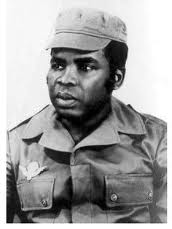 Marien Ngouabi (1969 - 1977) |
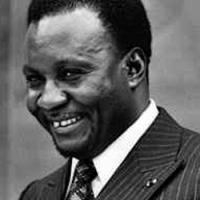 Joachim Yhombi-Opango (1977 - 1979) |
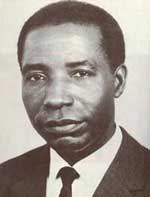 Alphonse Massamba-Débat (1963 - 1969) |
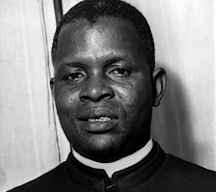 Fulbert Youlou (1960 - 1963) |


 Webmail
Webmail 






